
Marcel Messner – GEWA
GEWA Music is one of the foremost manufacturers and distributors of musical instruments in the world.
The company is based in Germany, in the Vogtland area, which has been known for over three hundred years, as a centre for instrument manufacture. And with the rapid growth of technology in recent years, it has expanded into a centre for communication technology and software development.
Marcel Messner, CEO of GEWA, sat down with MIN’s Andy Hughes, to discuss his personal history with the company, his vision for its continued growth, and the exciting news that GEWA are now appointed as worldwide manufacturers and distributors of the iconic Gretsch drum company.
GEWA has been in existence for a very long time, since 1925, how did you become involved with the company?
My father joined the company back in 1989, and he became a shareholder. Before that he was working with Hohner for many years. Some members of the board, including my father, left Hohner, and he joined GEWA. While I was in school, I was always generally involved in the business. During school holidays, we would have people from the company over for meetings, so when I left school, it was a natural progression for be to join the company. I did internships in the US, at Remo and at DW, to get a feel for how the industry works. During that time, I realised that this would be a right career move for me, and that’s when I started.
I joined the Marketing Department, I was involved with building up the on-line marketing, building the team. And when I finished my studies, I was promoted to become Director of Marketing within the company. I ran that department for almost two years, and then I was made responsible for Sales and Marketing. And finally, during the pandemic, in 2021, I became CEO, sharing a position with my father. These days he is responsible for Purchasing, Finance, and Human Resources. And I am responsible for Sales, Marketing, Logistics, and IT. And together we work on building the correct strategies for the company. It is an advantage having different generations to offer advice. It’s helped us over the last few years, to make sure the company is moving in the direction we want it to follow.
Your website advises that you manufacture ‘entry level’ products – is this a particularly strong area of the instrument market?
I know that has been a highly successful area of the instrument market for us, and of course, more recently we have expanded our portfolio over the entire range of instruments that we offer. We have always believed very strongly in manufacturing good quality instruments for new musicians. Because what we have seen over time, is that new students of instruments are starting out on their guitar, violin, whatever it is, and they begin with a really cheap and poor-quality instrument. And very quickly they lose the fun and the pleasure of playing it. So, our approach was to make an instrument for the student that they can use and play for many years, and when they progress to the next level, they can move on from there.
So, the manufacturing side of the company still plays a very important part?
Yes, very much so. The company began primarily as a manufacturer of stringed instruments and cases, and over time, it evolved into more of a distribution company, and the manufacture was less of a priority. But from the early nineties, we have been steadily expanding the manufacturing side of the company again. And now we have major manufacturing over in China, for drums, guitars, woodwind, and brass instruments, together with cases and bags. This is part of the company transformation that we are going through at the moment, we are offering reasonably priced good quality instruments for students, and also professionals, across our entire instrument portfolio.
Instrument manufacture has always been hugely competitive, how do you advertise, and attract business, what is your USP?
I think one of our USP’s is definitely the people we have looking after the company. Together with the region in which we operate, the Vogtland region, has been a centre of music instrument manufacture for hundreds of years. And that is a big advantage when we are looking for manufacturers to supply instruments for us. It’s that level of expertise in manufacture that we are able to pass on to our manufacturing bases in China. That’s another USP, that the manufacture comes from the thoughts of an instrument maker with that tradition, and that is something only GEWA can offer.
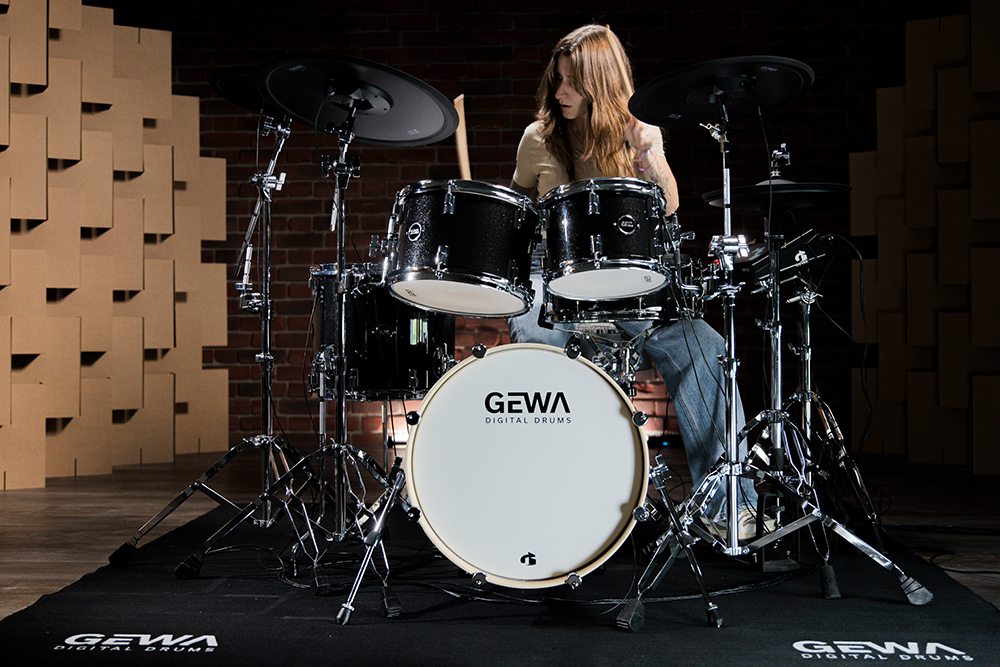
Do you have all the major territories covered now, or is there anywhere you would like to develop?
If we are talking about the countries that we currently deal with, Europe and the USA, we are very happy with the level of coverage that we have in those territories. Now that we have taken on the licencing for Gretsch Drums, plus Ovation Guitars, and together with our own brands, we are looking into expanding our operations in South East Asia, the Pacific, South America, these are markets which are now building on. What I am specifically working on right now, is expanding our market reach further in the U.S.
The sheer scale of an international company like yours, means having lots of things happening simultaneously. How do you manage to keep track of everything?
It always comes back to teamwork, that is the most important aspect of our company operation. When you have a company the size that ours is now, no one person can keep track of everything all the time. So, the key is to have the right people running each department who can continually update you with the right information that you need. We all keep each other informed constantly about changes and developments. If something significant is happening, then we get together and discuss it and work out what our company strategy is going to be to deal with it. We have a team of four to six people who guide the company. My father is there with plenty of experience, and we have our CPO who runs our purchasing and oversees a couple of our subsidiaries. We have a very smart guy in charge of product management and development. And we have two main people in our Sales Department who have a large amount of experience between them. So, it comes down to the right people with the right experience levels and commitment to the company.
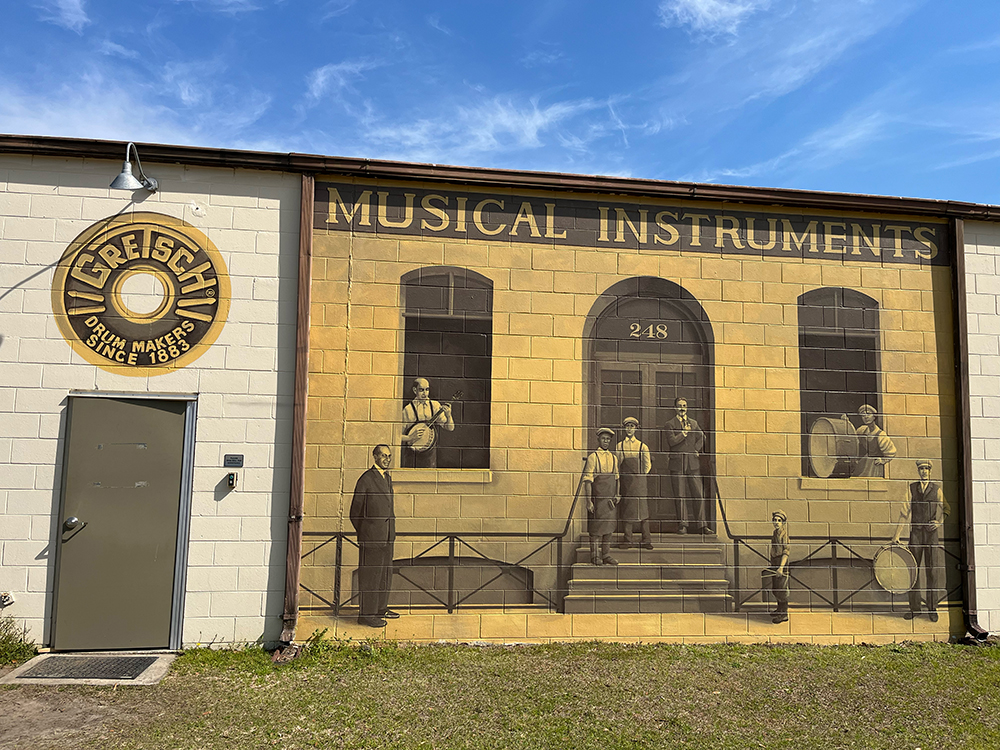
The company has just taken on distribution and licensing for Gretsch Drums worldwide. How did that come about?
Back in 2015, DW bought what I call the ‘Fender Package’. It included Ovation Guitars, Gretsch Drums, LP, Gibraltar, and some other brands. And we have been the exclusive distributor for Gretsch and PDP in Europe for around twenty-five years. DW asked us if we were interested in the European distribution of their brand, and we put finance into the deal, so we gained Gresch as part of that arrangement, and we’ve been distributing them in Europe since 2015. We enjoy a kind of familial relationship with the Gretsch family in terms of product and development because a lot of the Gretsch drum sets are manufactured by our operation in China. We have never been in charge of running the American workshop in Richland, but we have maintained an interest in seeing the development of the brand. It’s one of the oldest drum brands in the world. Back in 2022 when Roland bought DW, that was something that came to our attention. We wondered if they were interested specifically in developing the Gretsch brand, or if it was something that we could become involved with. So, we have been talking with the Gretsch family and with the Lombardi family about DW. Gretsch is with us now, and we can bring in some innovative ideas for its development.
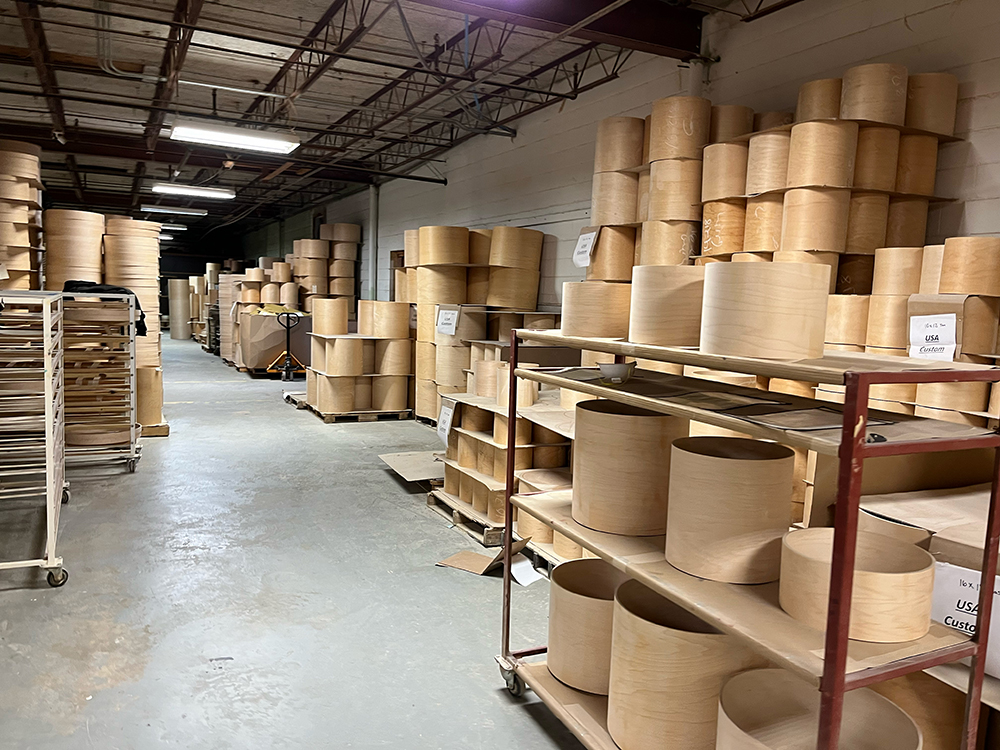
Gretsch is an iconic brand in drum manufacture. How does taking over the manufacture, licensing and distribution for such a well-known and respected company feel, for you personally?
Well, we have control of the company now, we are in charge of the manufacturing and distribution of the entire Gretsch operation. I can say that everyone here at GEWA is immensely proud of the Gretsch brand. As you say, it is an iconic brand and company, and some of the biggest names in drumming ever have played, and are still playing Gretsch kits. Therefore, we have a level of responsibility, and we are extremely motivated to take the brand to a new level. The investment we are going to bring will assist in dealing with the massive demand for American-made drums.
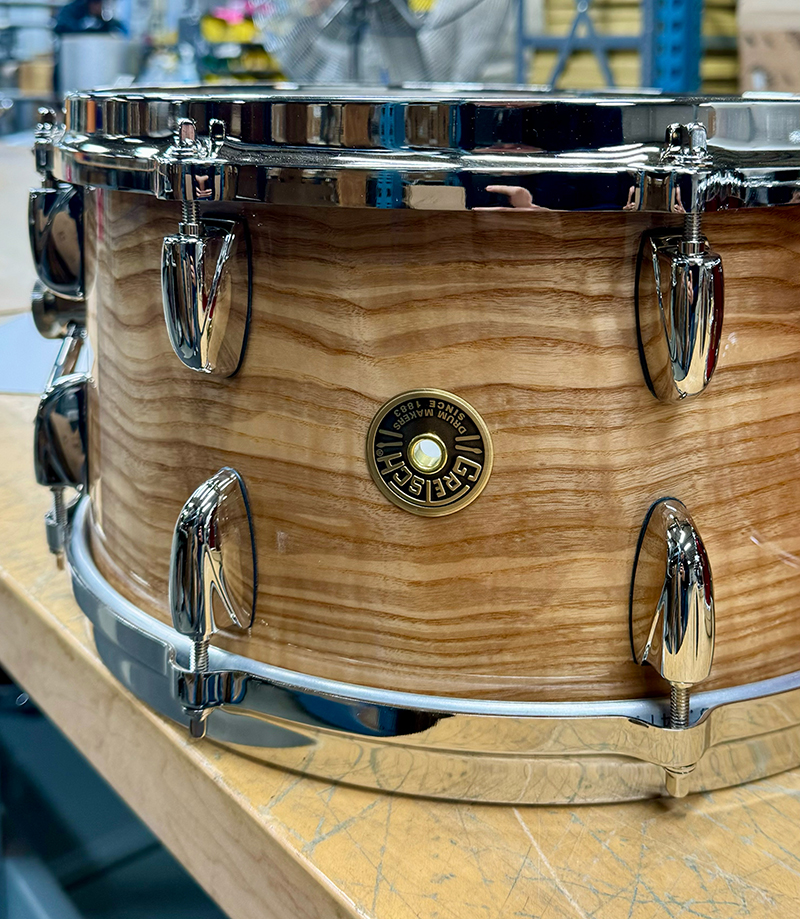
And of course, you will be keen to develop and expand Gresch’s share of the market. Do you have any strategies you can share today, or is it all kept away from the public eye?
We will start with a close examination of the American factory set-up and see what needs to be done in terms of investment, in order to increase the manufacturing capacity, and also increase the quality levels of the instruments. When we bought the licence in January this year, myself, our Product Manager, and our Director of Sales were in Richland that day, talking to the Gretsch people there, in person. We told them that we were not there to attempt to tell them how to build drums. They have been doing that for decades, they know exactly how to build drums with the classic Gretsch sound. We are here to help, and if we see something where we think we can make an improvement, then we will do it. And we’ve been watching very carefully. And we’ve been through the process of hiring some really good people in the United States, with plenty of experience in drum manufacture. They have been working with the team in Richland to help to implement some of the ideas we want to bring into the company. I am not able to go into too much detail at the moment, but I can confirm that at the NAMM show next January, there will be some exciting new products being unveiled from Gretsch Drums.
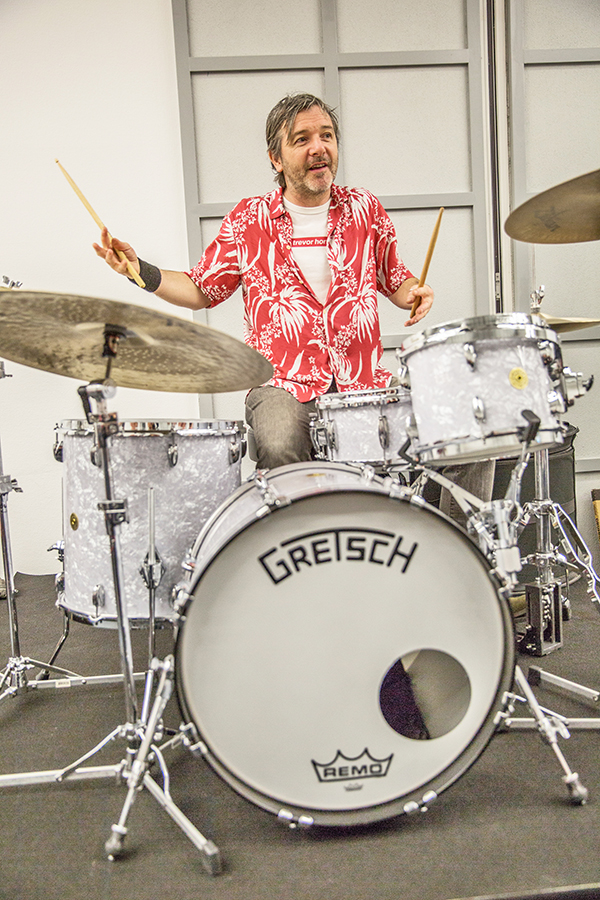
Endorsements are a hugely important part of maintaining brand awareness for an instrument manufacturer. Are there any players you would like to bring into the Gretsch endorsee list, or are you happy with the roster that you currently have?
I think that with Gretsch, as with any and all of the major drum manufacturing companies, endorsement is all about a mutual fit between the company and the musician. People who are endorsed by Gretsch are extremely loyal to the company, and they stay for a long time. They love the unique sound, and the look of Gretsch drums. But I think that endorsement is about a mutually beneficial relationship. To be an endorsee of Gretsch, the sound, and the look of the drums, has to fit entirely with what you are doing, as a player. We are looking towards new musical genres that are developing all the time. One of those is New Country, which is enjoying a big growth in America at the moment. Fortunately, we have been able to maintain the core team that has been at Gretsch in America for the last ten years, and they are keeping an eye on musicians who may be suitable to discuss endorsements with in the future.

Do you have any more planned brand developments for the company you can share with us?
Yes indeed. Right at the start of the pandemic, in October 2020, we bought the Ovation Guitar brand, which is basically going through the same sort of process that we have gone through with Gretsch. We have successfully re-opened the manufacturing plant in the United States. We have started manufacturing the high-end Adamas guitars, and we are moving into production of Ovation guitars in the U.S., and now we have started to manufacture Ovation guitars here in Europe. And in April, we acquired the Wittner company, they are manufactures of tuning packs and accessories for the classical market. And as our company approaches its one-hundredth anniversary, we also want to concentrate on our own instrument brands, and grow that section of the company. We are looking at a couple of new products which we are hoping to release within the next twelve months, under the GEWA brand, and make sure that people know what our company is all about.
On a personal level, what’s the single most important skill that you have, that enables you to do your job well?
That’s an interesting question. I think it is a mixture of different elements. One of the most important things, is the decision to go into a specific business, in our case the music business, then you must have a level of passion about it. I think with that passion comes the urge to put in all the necessary hours that are involved, and that comes naturally from the passion for the area you are working in. A certain skill, from what I have seen, is listening to others. You have to have your own firm opinions, that is essential, but listening to others, building teamwork is vitally important. You have to gain experience in the process of decision making. And that should always involve getting as much input as you can from the people around you, and then blending that with your open opinion, and coming to a decision about the way forward. I have to make the decisions, but I always want them to be based on sound advice and information from the people around me.
What are the medium- and long-term plans for GEWA moving forward?
I have learned that it is really hard to look ahead even five or ten years, and certainly difficult to look very far beyond that. I remember, when I first started my involvement with this company, I always attended the Musikesse in Frankfurt, the major trade fair in Europe at the time . I went every year from about 1994 to 2015. I experienced the massive growth of the event, and I also saw the downfall, caused by so many changes in our industry. So, you need to be aware that things can change at any time. You always need to be moving forward, that is vital, and also be aware that sometimes you have to take left and right turns as well within the moment. It is our long-term plan to retain control of manufacturing and distribution, and work with a large range or retailers who are out there. We need good, well-educated retailers to sell our products. We know that is a challenge, with the difficulties faced by the retail sector in Europe and of course in the UK. But this is the challenge for us moving forward to find, and keep the right partners to work with us. There are excellent retailers out there, and we are looking forward to helping them grow and develop, which is to our mutual benefit. The biggest challenge of all for us, is to create more musicians, more music makers. Young people today have so many demands on their time, so many options for things they can do with their time, and creating music with an instrument is a really small part of that potential experience. So, the challenge is for us to create more music makers, who will want and need more instruments to play. That is our challenge, and we are very much looking forward to it.
ANDY HUGHES.
The post Marcel Messner – GEWA appeared first on Music Instrument News.
Source: musicinstrumentnews.co.uk


